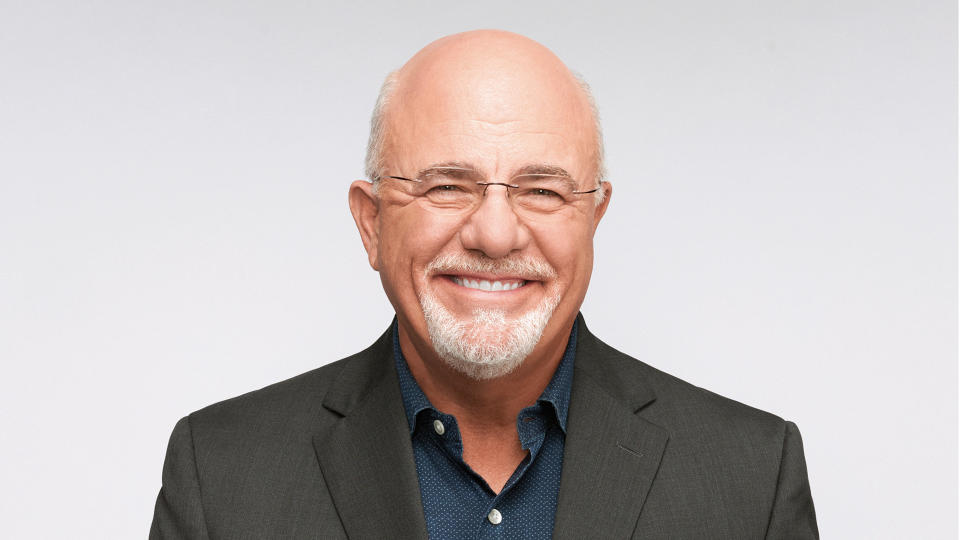
If you’re wondering how to better manage your finances and be less stressed, improving your money skills will help. Not only will you be better equipped to live within your means, but you’ll also have strategies for saving for your future and avoiding taking on unnecessary debt. Plus, a solid financial foundation is important for building wealth.
See: 6 Ways To Build Wealth Slowly but Efficiently
Also: 3 Things You Must Do When Your Savings Reach $50,000
In a blog post, the financial guru and radio host Dave Ramsey suggested mastering these seven basic money skills.
Sponsored: Get Paid To Scroll. Start Now
Start Using a Budget
Your budget is essential for controlling your money and making other financial goals possible. Ramsey gave some basic instructions for using the zero-based budget method. This involves assigning your monthly income to expenses until you have exactly zero funds left.
After covering your typical monthly expenses, you can use any spare money for goals and other plans. For example, Ramsey suggested contributing to a sinking fund you can use for irregular expenses, such as your car insurance, and big purchases. By putting money aside each month, you can avoid a financial shock and potential debt to cover such costs.
As you spend money during the month, account for each purchase in your budget so you can watch your spending habits. You may need to make adjustments for variances and cut other costs along the way. Additionally, Ramsey suggested revisiting your budget monthly since your expenses will likely vary.
Have an Emergency Fund
While your sinking fund covers planned expenses, you still need an emergency fund for the expected. For example, you might face a costly car repair, medical bill or temporary unemployment and be stuck wondering how to get cash.
To prepare for such setbacks, Ramsey suggested initially building up a $1,000 emergency fund in a highly accessible bank account. You can take this chance to also shop around for a bank with competitive interest rates. He then advised increasing the amount to three to six months of your essential expenses once you’re debt-free.
Get Rid of Debt
Ramsey’s view of debt is that it’s a burden that takes up your income and hurts your chances of becoming wealthy. So, he emphasized the importance of escaping debt even before you contribute to your retirement fund.
While making at least minimum payments, consider putting extra toward the smallest balance. Once that’s paid off, you can then target the next smallest debt and so on – a strategy also known as the debt snowball method. Your budget may be tight for a while, but you’ll later enjoy the freed-up income for other goals.
Contribute Toward Your Retirement Fund
Ramsey wrote, “When you follow the Baby Steps, you’ll start socking away 15% of your income for retirement once you’ve paid off all your debt and saved up that fully funded emergency fund we just talked about.” While this is the minimum, you might consider a higher contribution to increase your chances of reaching your retirement savings goal.
He recommended starting with a 401(k) account since you could get tax benefits and a potential employer match. He also mentioned getting a Roth IRA due for tax benefits at retirement but cautioned about the low yearly contribution limit. Just make sure to diversify your investments to reduce risk when the markets swing.
Buy Essential Insurance Policies
Although insurance premiums can add up, they’re important financial protection against various risks in life. While some insurance policies are mandatory, many others are optional, so it can be hard to decide which are essential. Ramsey identified the following eight policies as necessary:
-
Renters or homeowners coverage (with potential add-ons)
-
Liability or full coverage car insurance
-
Long-term care insurance (at age 60)
-
Health insurance (high-deductible plan if needed)
-
Long-term disability insurance
-
Term life insurance
-
Identity theft protection
-
Umbrella coverage (for those with a $500,000+ net worth)
Consider speaking with an agent to learn more about how these work and determine your coverage needs. Plus, don’t forget to check prices through various insurers and look into savings opportunities, such as policy bundles.
Buy Affordable Housing
Ramsey warned about the dangers of high housing costs and offered a handy guideline for renters and homeowners alike. He wrote, “Don’t spend more than 25% of your monthly take-home pay on housing costs.” Keep in mind this not only includes your loan or rent payment but also required fees and taxes.
For aspiring homeowners, he recommended some strategies for reducing the interest and fees paid on a mortgage. These include making a 20% minimum down payment and getting a conventional mortgage with a fixed rate and 15-year term.
Have a Will
While you might feel tempted to put off drafting your will, this can create several issues for your loved ones when you pass away. Ramsey warned about how distributing your assets would be left up to the government in that situation. Plus, if you have children, custody issues could be a concern.
He suggested using an online service to affordably create a will with clear instructions. You should specify who you want to get certain assets and take care of any children you have. This is also an opportunity to plan for any gifts to a charity or other important organization.
More From GOBankingRates
This article originally appeared on GOBankingRates.com: Dave Ramsey: 7 Basic Money Skills Everyone Needs To Master

Based in New York, Stephen Freeman is a Senior Editor at Trending Insurance News. Previously he has worked for Forbes and The Huffington Post. Steven is a graduate of Risk Management at the University of New York.

